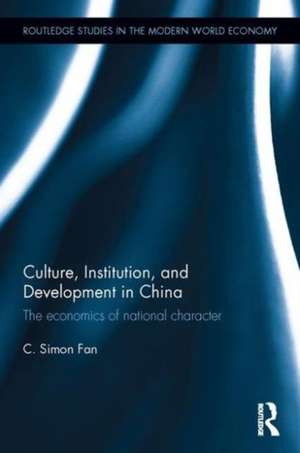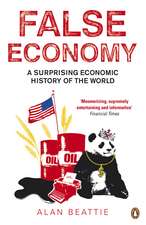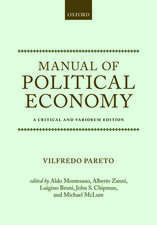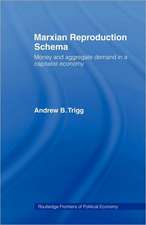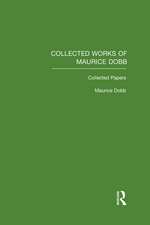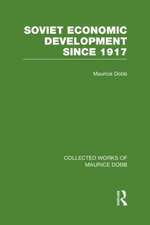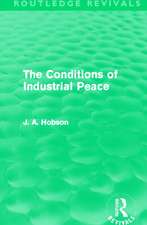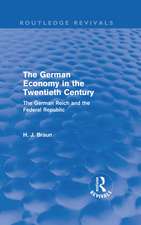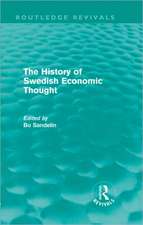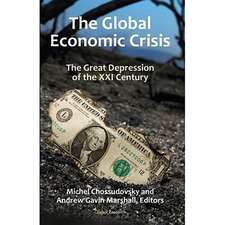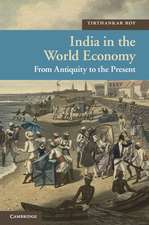Culture, Institution, and Development in China: The economics of national character: Routledge Studies in the Modern World Economy
Autor C. Simon Fanen Limba Engleză Hardback – 24 mar 2016
| Toate formatele și edițiile | Preț | Express |
|---|---|---|
| Paperback (1) | 389.38 lei 6-8 săpt. | |
| Taylor & Francis – 23 sep 2019 | 389.38 lei 6-8 săpt. | |
| Hardback (1) | 1058.65 lei 6-8 săpt. | |
| Taylor & Francis – 24 mar 2016 | 1058.65 lei 6-8 săpt. |
Din seria Routledge Studies in the Modern World Economy
-
 Preț: 310.84 lei
Preț: 310.84 lei - 8%
 Preț: 389.46 lei
Preț: 389.46 lei -
 Preț: 384.87 lei
Preț: 384.87 lei -
 Preț: 324.35 lei
Preț: 324.35 lei -
 Preț: 310.33 lei
Preț: 310.33 lei -
 Preț: 385.80 lei
Preț: 385.80 lei -
 Preț: 326.15 lei
Preț: 326.15 lei -
 Preț: 306.19 lei
Preț: 306.19 lei - 18%
 Preț: 1112.34 lei
Preț: 1112.34 lei - 28%
 Preț: 992.21 lei
Preț: 992.21 lei - 15%
 Preț: 714.29 lei
Preț: 714.29 lei - 18%
 Preț: 1054.27 lei
Preț: 1054.27 lei - 28%
 Preț: 821.46 lei
Preț: 821.46 lei - 18%
 Preț: 1167.78 lei
Preț: 1167.78 lei - 15%
 Preț: 699.01 lei
Preț: 699.01 lei - 18%
 Preț: 946.06 lei
Preț: 946.06 lei - 18%
 Preț: 1230.51 lei
Preț: 1230.51 lei -
 Preț: 398.18 lei
Preț: 398.18 lei - 18%
 Preț: 1167.61 lei
Preț: 1167.61 lei - 30%
 Preț: 1014.31 lei
Preț: 1014.31 lei - 28%
 Preț: 823.99 lei
Preț: 823.99 lei - 28%
 Preț: 820.73 lei
Preț: 820.73 lei - 18%
 Preț: 1166.68 lei
Preț: 1166.68 lei - 26%
 Preț: 849.65 lei
Preț: 849.65 lei - 18%
 Preț: 1278.70 lei
Preț: 1278.70 lei - 18%
 Preț: 1059.84 lei
Preț: 1059.84 lei - 15%
 Preț: 699.01 lei
Preț: 699.01 lei - 27%
 Preț: 1022.76 lei
Preț: 1022.76 lei - 27%
 Preț: 564.95 lei
Preț: 564.95 lei - 18%
 Preț: 720.49 lei
Preț: 720.49 lei - 18%
 Preț: 1061.93 lei
Preț: 1061.93 lei - 15%
 Preț: 643.71 lei
Preț: 643.71 lei - 18%
 Preț: 711.10 lei
Preț: 711.10 lei - 18%
 Preț: 905.11 lei
Preț: 905.11 lei - 18%
 Preț: 1109.21 lei
Preț: 1109.21 lei - 18%
 Preț: 1171.89 lei
Preț: 1171.89 lei - 18%
 Preț: 1064.67 lei
Preț: 1064.67 lei - 18%
 Preț: 1167.43 lei
Preț: 1167.43 lei - 18%
 Preț: 1057.05 lei
Preț: 1057.05 lei -
 Preț: 423.30 lei
Preț: 423.30 lei - 18%
 Preț: 1063.28 lei
Preț: 1063.28 lei - 18%
 Preț: 1164.75 lei
Preț: 1164.75 lei - 18%
 Preț: 1123.68 lei
Preț: 1123.68 lei - 15%
 Preț: 694.09 lei
Preț: 694.09 lei -
 Preț: 398.44 lei
Preț: 398.44 lei - 18%
 Preț: 1219.38 lei
Preț: 1219.38 lei - 28%
 Preț: 873.52 lei
Preț: 873.52 lei - 18%
 Preț: 1062.93 lei
Preț: 1062.93 lei - 29%
 Preț: 1030.16 lei
Preț: 1030.16 lei - 31%
 Preț: 765.84 lei
Preț: 765.84 lei
Preț: 1058.65 lei
Preț vechi: 1291.04 lei
-18% Nou
Puncte Express: 1588
Preț estimativ în valută:
202.60€ • 219.99$ • 170.18£
202.60€ • 219.99$ • 170.18£
Carte tipărită la comandă
Livrare economică 23 aprilie-07 mai
Preluare comenzi: 021 569.72.76
Specificații
ISBN-13: 9781138185715
ISBN-10: 113818571X
Pagini: 288
Dimensiuni: 156 x 234 x 23 mm
Greutate: 0.57 kg
Ediția:1
Editura: Taylor & Francis
Colecția Routledge
Seria Routledge Studies in the Modern World Economy
Locul publicării:Oxford, United Kingdom
ISBN-10: 113818571X
Pagini: 288
Dimensiuni: 156 x 234 x 23 mm
Greutate: 0.57 kg
Ediția:1
Editura: Taylor & Francis
Colecția Routledge
Seria Routledge Studies in the Modern World Economy
Locul publicării:Oxford, United Kingdom
Public țintă
Postgraduate and UndergraduateCuprins
1. Introduction Part 1: Geography, Nomadic Threat, and the Size of Ancient China 2. Why Has China Stayed a Single Big Country? 3. How Can a Large Agrarian Country Deter Powerful Horse Warriors? 4. How Did China Become a Single Big Country? 5. The Threat from the United Nomad Country and the Start of the United Chinese Empire Part 2: The Formation of National Character in Ancient China 6. From the "Burning of Books and Burying of Scholars" to the Ideology of Confucianism 7. Economics of the Optimal Personality in Ancient China 8. Meritocracy in Ancient China: Keju 9. Personality and Culture of Lawless (Nomadic) Tribes Part 3: How Did the Ancient Dynasties Manage the Large Country of China? 10. From the Tang Dynasty to the Yuan Dynasty 11. The Ming Dynasty 12. The Qing Dynasty Part 4: An Introduction to Ancient Japan and the First Sino-Japanese War 13. Bushido: The Soul of (Ancient) Japan 14. Wo-Kou: Short Japanese Bandits and Weak Chinese Militias in the Ming Dynasty 15. The Arrival of Perry, Meiji Restoration, and Rise of Japan 16. The First Sino-Japanese War Part 5: National Humiliations in the Late Qing Dynasty and the "New Culture" Movement 17. National Humiliation at the End of the Qing Dynasty 18. New Culture Movement Part 6: Japanese Atrocities and the Transformation of the Chinese Personality 19. Japan’s Invasion of Manchuria 20. Japanese Rule of Manchuria: Why Was It A Success? 21. The Second Sino-Japanese War 22. Japanese Atrocities and American Participation in the Sino-Japanese War 23. Japanese Atrocities and the Growth of Chinese Communist Troops 24. Who Killed 2.12 Million Japanese Troops in World War II? 25. War Rape and "Comfort Women" 26. Japanese Atrocities and the Transformation of the Chinese Personality Part 7: The Establishment of Communist China and the Chinese National Character 27. Korean War 28. Cultural Revolution 29. Epilogue
Notă biografică
C. Simon Fan is a Professor of Economics at Lingnan University, Hong Kong.
Descriere
How does culture shape history, and history shape culture? This book answers this by bringing readers on a fascinating journey through the evolution of Chinese culture, political and legal institutions, and "national character" of historical and contemporary China.
The book illustrates how "national character" evolves endogenously along with an institutional environment through the use of economic theories. It analyses the relationship between culture, institution and "national character", providing gainful, interesting insights into the monumental transformation of China.
The book illustrates how "national character" evolves endogenously along with an institutional environment through the use of economic theories. It analyses the relationship between culture, institution and "national character", providing gainful, interesting insights into the monumental transformation of China.
